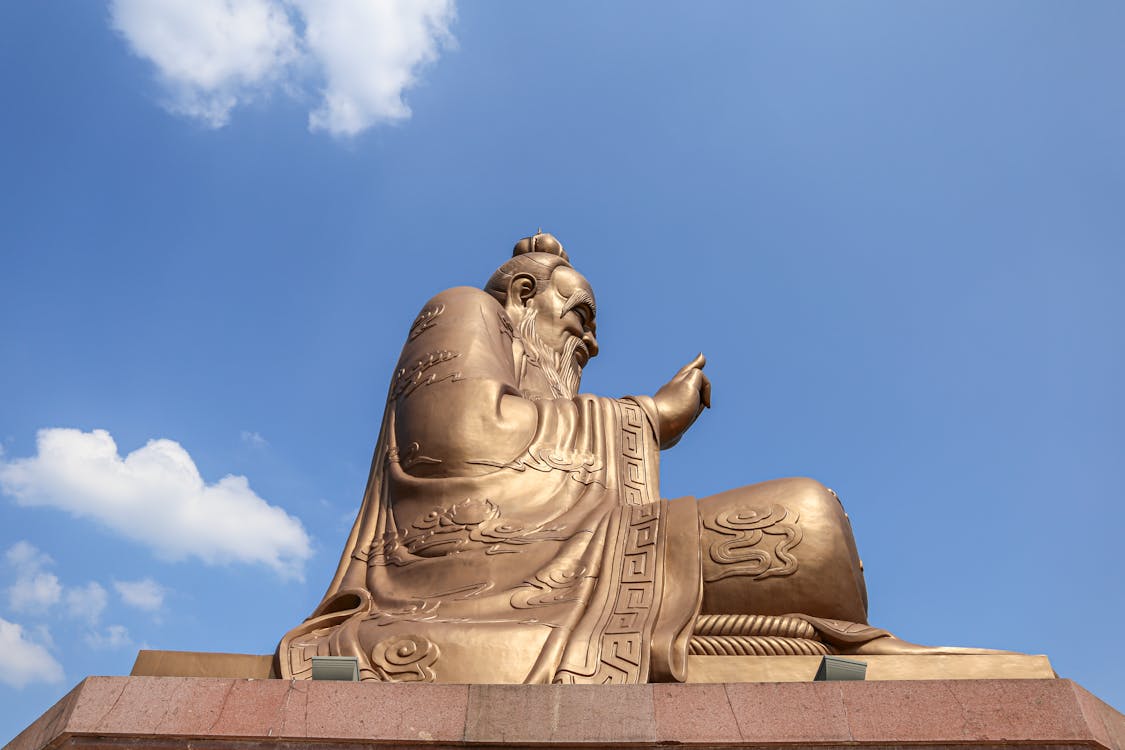 What economic system makes it easy to start a business? The idea of the free enterprise system stands as a light of opportunity and creativity in a world where economic systems influence the future of both countries and individuals. What economic system makes it easy to start a business? The Free Enterprise System itself holds the key to the solution. This article will examine the core of this economic system, illuminating what it is and how it functions.
What economic system makes it easy to start a business? The idea of the free enterprise system stands as a light of opportunity and creativity in a world where economic systems influence the future of both countries and individuals. What economic system makes it easy to start a business? The Free Enterprise System itself holds the key to the solution. This article will examine the core of this economic system, illuminating what it is and how it functions.
What is a Free Enterprise System?
What economic system makes it easy to start a business? An economy where the market, as opposed to the government, sets pricing for goods and services is a free enterprise or the free market. Government control over businesses and services is not present. Alternatively, the term “free enterprise” could refer to a philosophical or legal framework in which the majority of controls over commercial activity come from the private sector.

Free Enterprise as Law and Economics
Private property rights, voluntary agreements, and open bidding for products and services are the cornerstones of free markets. This is true both in theory and in practice. Contrary to the fixed or controlled distribution of commodities and services, coercive activities, and public ownership of property, this framework does not involve any of these. Free enterprise is often linked to laissez-faire capitalism and libertarianism on a philosophical level in Western nations. Free enterprise, however, differs from capitalism. Capitalism describes a system for producing and distributing finite resources. A set of legal guidelines for conducting business is a “free enterprise.”

The Origins of Free Enterprise
Philosopher Laozi contended that governments inhibited prosperity and happiness by interfering with individuals. This was in the fourth or fifth century B.C. Laozi’s belief may have been the earliest documented reference to free enterprise systems. It took a long time before legal systems that resembled free enterprise systems became widespread. Between the 16th and 18th centuries, England served as the birthplace of modern free markets. The first industrial revolution and the emergence of modern capitalism occurred at the same time as this growth, and both events are likely related. International trade restrictions, tariffs, entry barriers in the majority of industries, and restrictions on private commercial contracts were all absent from the English legal system at one point in time.

During the 18th and 19th centuries, the United States also adopted a legal system that was largely based on the free market. The United States and the United Kingdom are now both best categorized as mixed economies. Switzerland, Singapore, Hong Kong, and other nations are better examples of free enterprise.
What are the characteristics of a free enterprise system?
The foundation of a free enterprise system is personal freedom. It is essential to be able to engage in economic activities in accordance with one’s personal freedom. A free enterprise system has elements of private property, economic freedom, financial incentives, competitive marketplaces, and a limited role for the government. Private property refers to real estate, possessions, and other things that are under the control of certain people. Instead of using or renting property owned by the government, people control their own property.
The freedom to pursue financial gain is economic freedom. This freedom includes the ability to start a business, look for work at a particular company, leave your job, make whatever kind of investment you like, and engage in any other economic activity. On the other hand, the term “economic incentives” describes the power to make independent financial decisions. People can choose to learn a higher-paying skill, accept employment, quit a job, relocate to work in another state, pick what to buy, and more.

Each person has unique personal preferences and objectives. Some people choose a modest way of life, while others like luxurious options. Some people prefer strawberry ice cream, while others prefer chocolate. A competitive market offers consumers alternatives. This is in opposition to several duplicates of the same product. In a free enterprise system, businesses compete with one another to provide the goods and services consumers demand. It is unlike having the government prescribe what consumers can and cannot receive. Although an unneeded government intrusion should not be a priority in a free enterprise system, this does not imply that the government is completely absent.
Goals of Free Enterprise
Freedom is the main objective of a free enterprise. This is the freedom of choice, the freedom to express oneself by producing any good you desire, or the freedom to set your own prices. Inefficient businesses are theoretically at risk of failing. This might happen because market since consumers won’t choose them and government policy won’t provide funding to support their survival. Additionally, there can be fewer steps or procedures needed to conduct business in a free enterprise.

Everyone should feel as though their rights and property have protection in a free market. This entails having complete control over the items they produce, the prices at which they can sell them, and the things they can use or buy. Additionally, they should work to develop markets that consider customer preferences in order to become self-sustaining. The long-term objective of free enterprise is to let customers construct the economy in a more predictable, stable manner than a government may be able to, rather than monetary or fiscal policy dictating economic situations.
In a free enterprise, each person should have the same rights as everyone else. In a free enterprise, there is no favoritism or special treatment given to particular individuals; all market participants are subject to the same rules without advantage from governmental policy.
The idea that people should be free to explore profitable possibilities without restrictions from the government is at the core of free enterprise. This implies that everyone has a higher chance of success when given more freedom.
Advantages and Disadvantages of Free Enterprise
Pros of Free Enterprise
A free enterprise has no bureaucracy to interfere with the market. Theoretically, processes are more effective, and they can be administratively less expensive to run a firm and engage with customers. This is particularly true in markets that are heavily controlled, yet greater competition may cause costs to shift. Market participants typically have more freedom and flexibility to express themselves. Entrepreneurs are not restricted by government regulations or told what products they need to make. A fundamental tenet of free capitalism is that successful businesses will innovate to meet market demand while failing businesses will go out of business because they no longer have a place in the market.

The main advantage of free enterprise is that customers have more influence over economic decisions rather than government policy. The final cost of a good, the products that will be in the market, and the success or failure of a product are all determined by the consumer. In a free enterprise system, it is up to the business to recognize these consumer preferences and modify its practices accordingly.
Cons of Free Enterprise
Having seemingly limitless freedom has its drawbacks. First, a free enterprise will not generate things that are typically unprofitable to make. This is due to the lack of an economic incentive for a company to produce these things (without government assistance or stipend). Limitations on the delivery of products may also be a factor. For instance, government support may contribute to the cost of providing telecommunication services to remote regions; without this funding, those communities could not have access to service.
Due to the emphasis on earnings, a free enterprise may also encourage undesirable behavior. Think about the case of Enron, which experienced financial collapse because it did not adhere to public reporting regulations. When there are little or no norms to abide by, businesses operating under a free market may compromise worker safety, environmental protection, or morality in order to increase their profits.

Last but not least, bailouts are not part of a free enterprise. As a result, public monies cannot support failing organizations that would have far-reaching impacts if they were to dissolve, making economic downturns theoretically worse. This is particularly true in the connected society of today, where one significant bankruptcy could have a negative financial impact on businesses all across the world.
Example of Free Enterprise
Think about how Apple Inc., a publicly traded corporation, and SunGard Data Systems, a privately held company, vary from one another. Both businesses conduct business within the United States, so neither is actually operating in a free enterprise system. However, suppose that each business needs to raise money. The Securities and Exchange Commission has established rules that Apple must follow as a public corporation in order to sell further shares and to be on stock exchanges. Meeting public reporting and filing requirements is another aspect of this. SunGard Data Systems, on the other hand, does not encounter as many government constraints as a private corporation, which allows it to acquire capital more easily (albeit still subject to restrictions).

The 2008 Global Financial Crisis is another illustration of free enterprise (or lack thereof). Congress approved the use of the Trouble Assets Relief Program (TARP) emergency money for struggling financial institutions as a response to the economic catastrophe. Government intervention to support faltering businesses would not occur in a truly free enterprise system. Instead, these businesses would collapse. Their collapse allowed the market to work out its own problems as other market players stepped in to fill the void left by the departing market participants.
How does free enterprise work?
People engage in economic activity for personal gain in a free enterprise system. Some recognize a need, and start a business to address it, others accept employment offers from the business, and others purchase the product. Every step depends on someone taking action and enjoying the rewards of their labor. Each individual engaged in free enterprise gains motivation from competition to sell the most goods, earn the highest wages, and raise their standard of living.
FAQs
How is free enterprise different from a command economy?
A command economy is essentially the reverse of free enterprise. A command economy, like those found in communist and totalitarian nations like Cuba and North Korea, is entirely run and owned by the government, whereas free capitalism depends on the private sector (privately held firms). The goal of government control in a command economy is to ensure that citizens have access to the necessities of life. The goal shouldn’t be to benefit the government or its representatives financially. In reality, however, the populace frequently suffers while the economic elite includes government officials.
Does the United States have a free enterprise system?
The free enterprise system in the United States remains largely intact. With rules (laws) intended to prevent abuses, the government should primarily serve as a referee under the ideal U.S. system. In actuality, politics, social pressures, and lobbying organizations do allow the government to extend its reach. Technically speaking, the American economy is a mixed enterprise economy. But the main illustration of a free enterprise system is the United States.
What countries have a free enterprise system?
A free enterprise system in its most pure theoretical form is rare, much like a free-market economy. However, a free enterprise system exists in many nations. Although the U.S. has a reputation for being a free enterprise system, other nations that have some form of it include the UK, Singapore, Switzerland, Australia, and Canada. It is important to remember that a democratic nation does not necessarily have a free enterprise system. Government regulation of private enterprise is extensive in many democracies.
Is free enterprise the same as free markets?
In common conversation, the terms free markets and free enterprise are frequently used interchangeably. But there are variations. Simply put, free markets are the setting in which free enterprise occurs, and free enterprise is the act of conducting business in a free market.
Does free enterprise help the rich or the poor?
Theoretically, people from all economic classes are free to choose their best course of action without outside interference in a free enterprise system. A free enterprise system shouldn’t discriminate against the poor or benefit the wealthy. Politics and economics are heavily divided on the issue of whether or not a free market economy is preferable. Generally speaking, free-market nations see far higher rates of economic growth, and this increased wealth raises both the rich and the poor’s standard of living.
Conclusion: What economic system makes it easy to start a business?
To answer your question, “What economic system makes it easy to start a business?” the Free Enterprise System is a tribute to human ingenuity and the power of economic freedom. It is the foundation upon which many entrepreneurs and visionaries have built their ambitions and made them come true. What economic system makes it easy to start a business? The free enterprise system, which strongly emphasizes competition, innovation, and individual liberty, offers a convincing response. It is a system that has sparked technical advancements, unleashed unbounded creativity, and improved the lives of many individuals.





